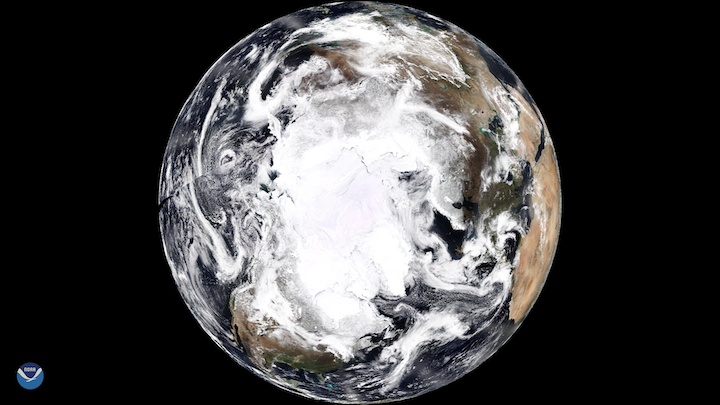Spire, Lockheed Martin, BAE and Others Receive NOAA Awards for New Technologies

NOAA photo of Earth from space.
The National Oceanographic and Oceanic Administration (NOAA) is funding nine awards totaling $13.8 million to industry and federal agencies to produce new concepts for instrument technologies, ground systems and other mission elements. Industry awardees include BAE Systems, Lockheed Martin, and Spire Global.
Spire Global received the largest award, a $4 million contract to deliver a hyperspectral microwave sensing payload. The payload will demonstrate how this technology can improve the accuracy of NOAA’s Numerical Weather Predictions. Spire said the HyMS contract is the first award with NOAA for its space services model.
“In this era of extreme weather, the need to leverage data from space to deliver more accurate weather forecasts has never been more critical. NOAA’s continued priority to collaborate with earth observation companies allows us to better predict, adapt to and mitigate the impacts of climate change,” said Kamal Arafeh, senior vice president of Global Sales, Spire. “We are thrilled to expand our work with NOAA to develop a payload that will collect additional near real-time weather observations and improve measurements within and beneath clouds.”
NASA Goddard also received $1.9 million for a separate HyMS contract.
BAE Systems, Ball Aerospace, Honeywell, and NASA Langley Research Center all received funding to measure atmospheric wind profiles, or 3D winds, from space.
Lockheed Martin Space, Orion Space Solutions, and Science and Technology received contracts for digital twin ground processing and dissemination systems that NOAA would use to streamline environmental observation from a variety of sensors in various orbits.
The National Environmental Satellite, Data, and Information Service (NESDIS) announced the Broad Agency Announcements (BAA) on Sept. 22.